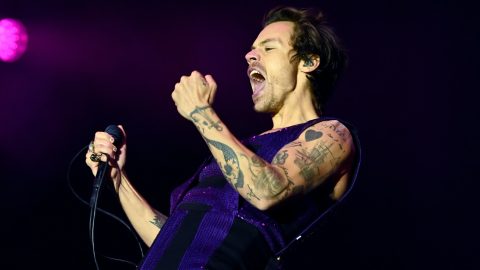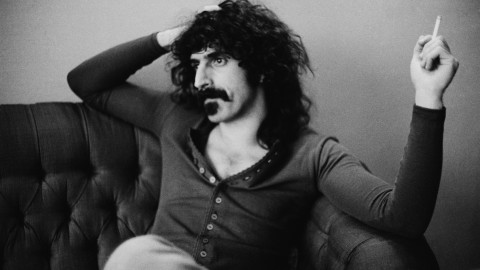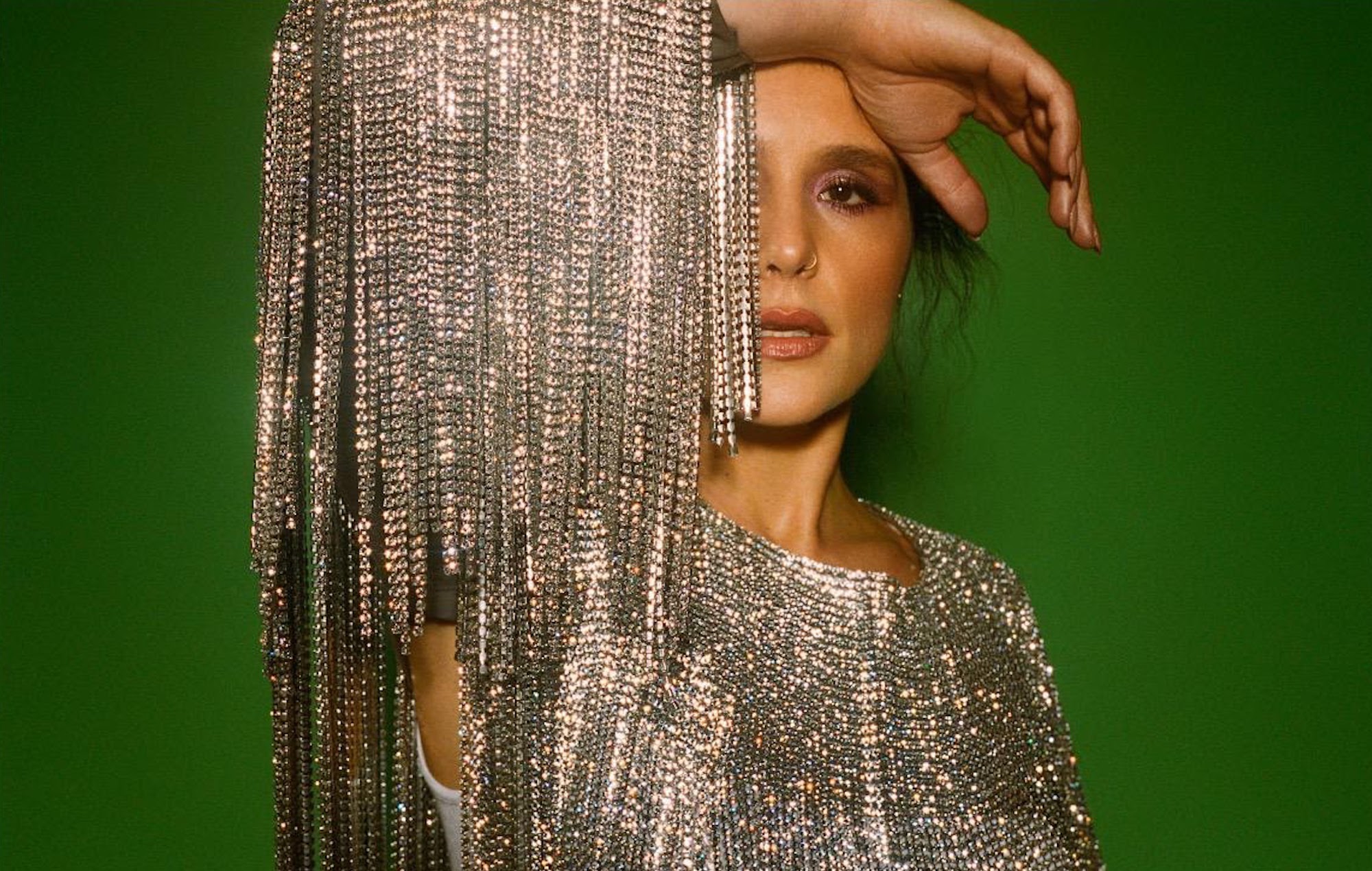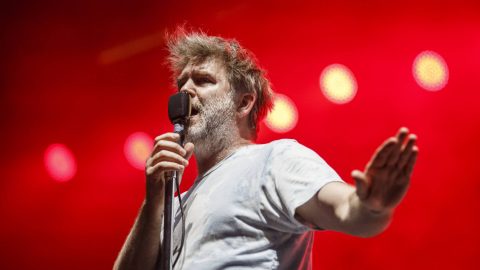When lockdown became unavoidable, The Murder Capital were two days into a US tour. With shows rapidly abandoned, they returned home to Dublin to isolate and take stock. It ended up being something of a sudden skid to a halt after a period of what had seemed unstoppable momentum – and an enforced opportunity to look back at what has been a breathless breakthrough year.
Whether or not they were initially intending it to be so, their new EP ‘Live From BBC Maida Vale’ now feels like the conclusion of the band’s brilliant first phase. Consisting of two live renditions of tracks taken from their acclaimed debut album ‘When I Have Fears’ plus an intriguing left turn in the form of a cover of FKA Twigs’ ‘Cellophane’, it’s both an affirmation of what’s taken them so far so quickly, and a tantalising reminder that there’s still much, much more to come.
NME caught up with frontman James McGovern, speaking from lockdown in Dublin, to talk about the new release, their story so far, and why isolation has only strengthened the band’s creative drive.

With lockdown enforcing a bit of a break, does your new EP mark something of an ‘end of part one’ for The Murder Capital?
James McGovern: “It does. We had quite a lot of touring left to do in the schedule, a lot of incredible festivals and stuff, but we had to let all that go. When we recorded it, it just felt like a cool day to be in this place where you’ve watched sessions take place since you were young, and then I think it was some time when we were in America when we thought we should give it a proper, full release. It wasn’t forced, or based on needing to stay relevant in times of no touring.”
Why cover FKA Twigs?
“It was quite last minute, but we took the idea of who we were gonna cover quite seriously. We were all really proud of it, and to just put it out there how big fans we are of Twigs’ work. That song specifically is so accessible on an emotional level due to just how gut-wrenchingly open she was when she wrote it.”
Was that choice at all influenced by a desire to subvert expectations?
“If you’re overthinking your moves in that sense you might end up making the wrong moves. I think it’s completely within The Murder Capital, being as it is within the five of us. I felt like the move to do something outside of what people might think we’d do is just an exciting one. More than anything, to cover something like that was more of an exciting challenge for us. Maybe people were waiting for us to go into Maida Vale and do something off [Joy Division‘s] ‘Unknown Pleasures’, but there are so many incredible artists around like Twigs. It’s incredible to be able to cover someone who’s so relevant. It made it more intimidating and more exciting for us.”
What’s your lockdown situation, and how are you coping with the impact on the band?
“I’m at home with my dad in Dublin. We got pulled out of our American tour two days into it, and on a personal level that took a little bit of time to get over. The first two weeks of lockdown were very much spent just coming to terms with it. Though I read this beautiful article in the Harvard Business Review describing how the feeling we’re all experiencing is a type of grief for lost time, and about allowing your feelings to morph into themselves naturally. That gave me a great sense of relief and allowed me, I think by week two or three, to just start to then push myself into more of a routine. I no longer wake up with a big pang of anxiety in my stomach.”
How do you feel that the Irish government are handling the crisis compared to the UK?
“From what I gather we’ve focused on other countries much earlier on than the UK, following the path of countries like South Korea who were handling it well, so in the grand scheme of things I think they’ve done a good job. There are still total fucking idiots like John Waters and Gemma O’Doherty [currently challenging Ireland’s lockdown in court], and people protesting outside the forecourts saying ‘We’re living in a police state’, but on a personal level it feels like although this lockdown is painful, the more stringent it is and the longer it goes on, the more fruitful our future will be sooner, and for a longer time.”

How does the UK look from a distance?
“To be honest, it feels from the outside that the UK has been in a perpetual state of self-harm for the last five or six years, and it’s hard to watch. I can see it directly affecting my friends and their mental health, the way the government is handling its large-scale situations at the moment. To me the idea that the UK government would still be in power coming out of this, that anyone would still trust them, is completely paradoxical.”
Are you working on new music?
“I’m on the phone to everyone individually every day and we’re doing a lot of home recording and demoing. We wrote everything in the same room together for the first record, so there’s a uniqueness to writing alone and having that full space and time. I might get sent something by Damien [Tuit, guitarist] and spend four or five hours coming up with 15 to 20 different vocal takes or ideas or rhythms or melodies without that pressure to move on when there’s four other people in the room. It’s coming to the point now that we’re really excited to just finally get in a room together and work on all these ideas properly. Stepping back has also made me realise how much I love what I do, and the reasons I do it.”

What are those reasons?
“Being allowed the time to start properly deep listening to records again, sitting and just listening to a record with no other focus. That really reconnected me with the emotional connection and honesty. I can listen to things that are pure head music, where it’s almost totally built on the theoretical intricacies and that’s still beautiful, but for me to truly connect with a song and to adore it for a lifetime is so important. I’ve only just understood that, and it’s definitely affected what I’m sitting here writing about, the topics I want to approach and the things I’m just allowing to come through me.”
The Murder Capital had such a rapid rise that it must also be a nice opportunity to take a breather and look backwards?
“It’s relatively recent that the five of us even met! It’s been enjoyable just to have a bit of a laugh about it all, and we’ve felt proud of ourselves, but after reflection comes the innate sort of reaction to start looking into the future.”
What stands out as the highlight so far?
“The recording of the first album always stands out as a wild fucking time – just how quickly it all came together. When I look back on those six weeks with Flood and Richey and Todd and stuff, it just doesn’t seem real. It makes me laugh to think about it, it was so focused but so manic. We were all over the place in so many ways, but we still came out with what we wanted to. I think we’re most effected by the touring side of thing, it’s the greatest escape but through such an intense direct connection with people too. I find it probably the most painful thought, how long it is until we can get back to that.”
The Murder Capital’s new EP ‘Live From BBC Maida Vale’ is out on Wednesday May 6. There will be a #TimsTwitterListeningParty of ‘When I Have Fears’ from 7pm on Sunday May 3.
The post The Murder Capital on their new EP, lockdown life and the “intimidating honour” of covering FKA Twigs appeared first on NME Music News, Reviews, Videos, Galleries, Tickets and Blogs | NME.COM.








